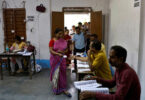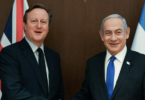F.P. Report
BRUSSELS: Speech delivered by Commissioner for Crisis Management, Janez Lenarčič, on behalf of High Representative/Vice-President Josep Borrell
President, Honourable Members [of the European Parliament],
The European Union has a clear commitment to the Afghan people and we follow closely the human rights situation in the country, and, in particular, the rights of women and girls.
As it has been said by many in this debate, there is a systematic deterioration of women’s rights in Afghanistan since the Taliban took power. They have deprived girls of secondary education, they have issued restrictions on women’s dress, work and movement, even barring them from entering public parks and gyms. Women have been excluded from most aspects of economic and social life. Shelters and mechanisms to protect women and girls from violence and forced marriages have been dismantled, severely restricting women’s ability to seek help despite reports of increase in gender-based violence.
In the past year, Afghanistan has also seen repeated attacks on educational institutions, on students eager to learn, with many of these attacks claimed by ISIS. Terrorist attacks also targeted religious and ethnic minorities, particularly the Hazara community.
The European Union condemns all the restrictions on women’s rights and continues to call on the de facto authorities to honour Afghanistan’s obligations under international law, in particular human rights, refugee and international humanitarian law. They have the obligation to protect all the population, to bring perpetrators to justice, and to ensure respect for human rights and fundamental freedoms of the entire Afghan population.
We will continue to support Afghan human rights activists and civil society as we do worldwide, as a fundamental principle of the European Union. This support includes raising individual cases of human rights defenders in our engagement with the de facto authorities, issuing statements on specific cases or developments of acute concern, financial support to civil society organisations, and continuation of safe passage operations for those Afghans that are particularly at risk and that want to leave.
The humanitarian situation in Afghanistan is beyond dramatic. The recent United Nations humanitarian needs overview, states that in 2023 over 28 million people out of 34 million Afghan population will need humanitarian assistance. Estimations are that the United Nations will therefore call for $4.6 billion for next year for humanitarian aid alone.
There are alarming levels of poverty and food insecurity and limited access to health care, particularly for women and children. The European Union has already mobilised €396 million for humanitarian aid in Afghanistan for 2021 and 2022. This is more than 10 times what was initially allocated for the country before the Taliban take-over.
Where is this funding going? It is going to many things, including financing programmes on protection, financing community-based education for girls who are deprived of their right to school, [and] financing basic healthcare for women and girls. We also have recently redirected €450 million of development aid for basic needs of the Afghan people – needs like health, nutrition, education, water and sanitation, and livelihoods. Also, in these fields, we have a specific focus on the needs of women and girls. In addition, €20 million have been also allocated for crisis response.
We shall continue to do our utmost to alleviate this major humanitarian, socio-economic and human rights crisis.
Thank you.






